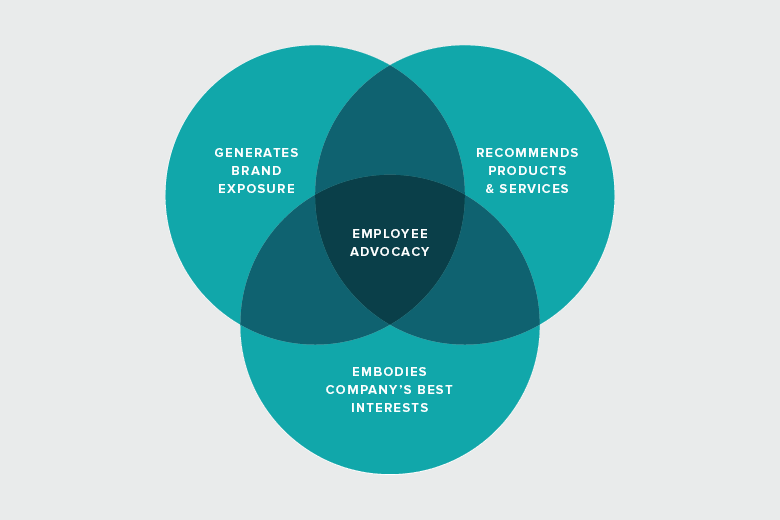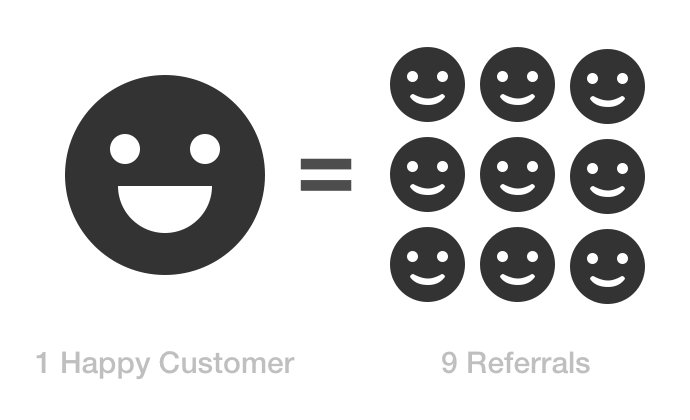Customer service training ideas to help build brand advocacy
What is the most important thing you can do to improve relationships with your customers? The answer is as obvious as it is overlooked: improve customer service. Excellent customer service is the intangible that sets you and your company apart from others.
Another important reason for improving customer service is reputation. Your company’s brand image and reputation depend on the way your customer service agents deal with customers on a regular basis.
What is brand advocacy?
Brand advocacy simply means that people who love your brand will continue to support your company and promote your services or products to new customers organically. The reason it’s important to get people supporting and pushing your brand is that people generally trust recommendations and content from colleagues, family, and friends over other forms of marketing.
Customers service training ideas for better brand advocacy
Integrating a brand advocacy strategy into your customer service training will allow you to receive support not only from customers but from your own employees too. Leveraging employee advocacy is like killing two birds with one stone. Not only will it solve your content reach and trust issues, you’ll also get the best customer service team in the world – a group of loyal and highly-engaged employees.
One company that exceeds in brand advocacy is Patagonia. They do this by publishing employee generated content that supports the company’s marketing efforts to position itself as a sustainable, eco-friendly lifestyle brand.
Now it’s your company’s turn. We’ve compiled a list of customer service training tips and ideas that will help your company build brand advocacy:
Communication is key
If you are not a great communicator, you will probably not go far in customer service. While product knowledge may be vital to providing good customer service, the ability to communicate with customers is just as important. Too many younger salespeople have never developed their ability to communicate on a truly personal level. Start by improving interpersonal skills and learning more about communication.
Some key communication skills include:
- Listening – The better you listen, the better you are at communication.
- Empathy – Being able to look at a situation through the eyes of a customer is an extremely valuable skill that can enable you to provide the highest degree of service.
- Show respect – Don’t multitask while communicating. Make sure what you’ve said is professional and respectful. Make eye contact and use people’s names.
- Positive body language – A person slouching their way through the store, with a sour or surly facial expression doesn’t look approachable. Use positive body language and engage with customers.
Set goals
Setting the right goals shows you understand the needs of your customers and what your team can do to better support them. An obvious reason for setting customer service goals is that it allows the entire team to focus and work towards one common objective.
Here are several things that need to be kept in mind when setting goals and objectives for your customer service:
- Be specific: The goals set should be specific and strictly defined so that success can be easily determined.
- Choose advocacy goals that align with your overall business objectives: If the team perceives that their performance has a direct positive impact on the company as a whole, they will certainly be more motivated to work more diligently.
- Measurable goals: Goal tracking software is one way to view and keep track of your goals. It makes it easy for employees to set and keep a record of their goals and it reminds them when they haven’t updated their goals for a given period.
- Review often: Rather than having one big goal for the year, separate your goal time frames into quarters or months. Monthly check-ins can help refine goals and drive progress.
Provide necessary tools
Your customer service staff will need tools to serve clients. Employees are only as productive as the available tools allow them to be. It is vital that your business has the right infrastructure such as communication and scheduling software that will help your employees be productive.
Train your sales team using the right technology. Some key sales technology to consider are:
- Customer Relationship Management (CRM) software – This allows you to track and manage your customers as they move through the sales funnel.
- Web Conference Software – This tool allows you to give product demos, connect with people anywhere, record conversations, and share screens.
- Employee Scheduling Software – From training and scheduling to keeping employees motivated and ensuring they’re doing their jobs correctly, employee scheduling software can help automate tedious tasks.
- Employee Advocacy Platform – This tool gives your employees a simple way to share curated, pre-approved content across their social networks.
- Gamification Tools – Gamifying your employee customer service program makes it more fun and a lot less corporate. These tools also give insight into how your performing against your coworkers.
Connect training to real life
After training, your employees should see its relevance to their day-to-day work routine. You can even act out a real-life scenario for training. Have an employee volunteer to play the customer and recreate one of the situations that your employee has encountered in the course. Role-playing should not only be instructive, it should be a good experience (even at times fun).
Incorporating scenarios into your training will help employees:
- Handle customer objections – How many of your employees are equipped to handle customer doubts? You’ll need to equip your employees with the tools to address objections without being pushy.
- Educates them on the dos and don’ts – For example, how to start a conversation and how not to, how much to talk, when to interrupt and when not to, and more.
- Builds confidence – When your team role-plays, you can throw any number of situations at them. Role-playing provides a safe environment to encounter these scenarios for the first time, which builds confidence in team members that can help them in their day-to-day roles.
Ask for feedback
Your advocates won’t take action unless you engage them. When you actively solicit feedback, it empowers your employees and sends a clear signal that you’re willing to work on you, too. To help your employees succeed, you need to understand what they deal with on a daily basis. Asking the right questions will give you valuable insights for improving sales and building brand advocacy.
Ask your sales team the following questions that will not only result in your team performing better, but will also help you become a better manager:
- What is the biggest obstacle to adding new customers? – The answers to this question can reveal operational issues, such as a lengthy procedure for setting up new accounts or order processing problems within your company.
- What is working and what isn’t? – Open-ended questions like this will quickly identify chronic complainers as well as uncover significant problems.
- What do you need from me to make the next week better than the last? – Every rep needs something a little different from the coaching process, and asking this question is a quick way to hone in on exactly what assistance your rep needs to grow.
- On a scale of 1-10, how happy are you? Why? – When your team is happy, they not only come up with better solutions, but their satisfaction also helps to build an organizational culture of high performance and low turnover.
The benefits of focusing on brand advocacy in your customer service training:
Having happy customers starts with having great customer service, and having great customer service starts with effective training. Customer expectations are higher than ever and word of mouth travels fast! In fact, a happy customer tells about nine people about their experience.
Overall, a well-trained and motivated team benefits your bottom line in terms of more sales and also improves team morale, branding message, employee churn, and business dynamics. Encourage your employees to become advocates, and your entire company could reap the financial rewards.
Want to deliver the best customer service to your customers? Download our Guide To Delivering The Best Customer Service and learn more about how Deputy can bring success to your company by booking a demo with our friendly team:



